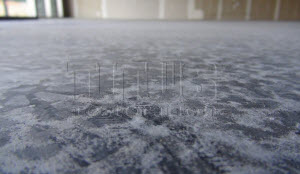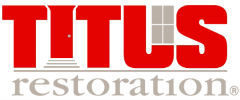 Sweating slab syndrome is a real problem that some indoor concrete floors will experience. Sweating slab syndrome is characterized by a slippery and wet slab surface that can cause hazardous working conditions. Several scenarios can trigger sweating slab syndrome. Humid air may enter the building and cause condensation to form on the concrete surface if certain conditions in the concrete exist. Salt may move from within the slab to the surface, where it contributes to surface moisture build-up. Or the absence of a vapor barrier may be the cause.
Sweating slab syndrome is a real problem that some indoor concrete floors will experience. Sweating slab syndrome is characterized by a slippery and wet slab surface that can cause hazardous working conditions. Several scenarios can trigger sweating slab syndrome. Humid air may enter the building and cause condensation to form on the concrete surface if certain conditions in the concrete exist. Salt may move from within the slab to the surface, where it contributes to surface moisture build-up. Or the absence of a vapor barrier may be the cause.
Another phenomenon that commonly occurs with sweating slab syndrome is efflorescence. This is the development of salt deposits on the slab surface. White, crystalline-like dust accumulates and can typically be swept up, but it just grows back. It can sometimes grow several inches high if not monitored.
Sweating Slab Syndrome: Danger!
The real danger of sweating slab syndrome is the risk of accidents or injuries due to the slippery floor surface. Pedestrians may lose traction and experience slip-and-falls. Even worse, machinery such as forklifts may lose the ability to steer or stop on the slick surface.
Imagine your employees sliding machinery into walls and equipment because of a wet concrete floor! In addition, if products or materials are stacked directly on top of the slab, they may be damaged by the built-up moisture they’re sitting on.
How to Remedy Sweating Slab Syndrome
The good news is that sweating slab syndrome can be remedied. Titus Restoration has perfected a chemical treatment process that neutralizes salts, impedes moisture, and restricts capillaries inside the slab. Our specific seven-step process prevents remaining salts from becoming soluble and traveling to the slab surface. One of the most important aspects of this process is using a lithium-based densifier to harden and protect the concrete.
Carefully treating and sealing concrete slabs is the best way to prevent efflorescence and sweating slab syndrome from happening in your building. At Titus Restoration, we strongly believe a lithium densifier does the best job of sealing and protecting the concrete. The lithium ions penetrate deeper into the concrete than other densifier products can. After sealing the slab, the concrete can be polished to your exact specifications.
With extensive experience in treating sweating slab syndrome, Titus Restoration’s technicians have the expertise required to effectively eliminate wet slabs and efflorescence. We treat concrete floors in commercial, retail, and industrial locations of all sizes. We are confident in our ability to resolve these and any other issues for your concrete floors.
